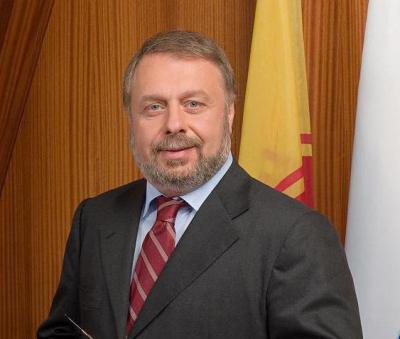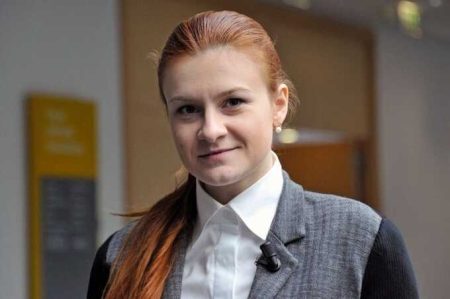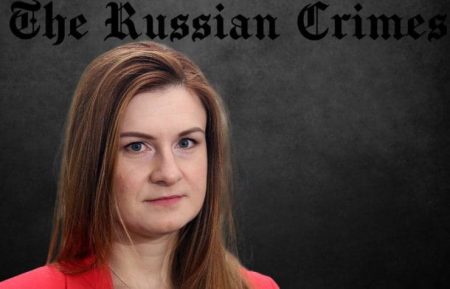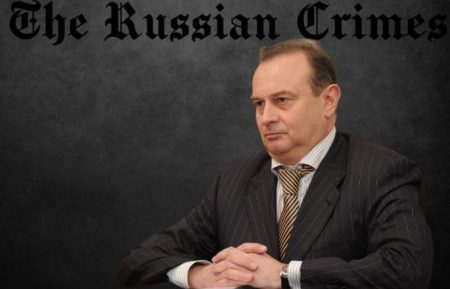Full name:
Torshin Alexander
Torshin Alexander Date of Birth
27 November 1953
Torshin Alexander Citizenship
Russia
Torshin Alexander Professional field/official position
State Secretary of the Bank of Russia (2015-2018), former member and deputy chairman of the Federation Council (2001-2015).
Torshin Alexander biography:
TORSHIN Alexander Porfiryevich (b. 1953) graduated from the All-Union Correspondence Law Institute in 1978, after which he worked in various roles in the prosecutor’s office of the RSFSR, in the Soviet Association of Political Sciences, the Presidium of the USSR Academy of Sciences, the Academy of Social Sciences under the Central Committee of the CPSU, and the apparatus of the President of the USSR. From 1992, Alexander Torshin worked in the Government Office, holding the position of deputy head of the department for interaction with parliament and organizations. During 1993-1998, he served as State Secretary of the Central Bank of Russia. From 1998-1999, he was the plenipotentiary representative of the Russian government in the State Duma, deputy head of the government apparatus. During 1999-2001, he worked as Deputy General Director and State Secretary of the State Corporation “Agency for the Restructuring of Credit Organizations.”
- In 2001, Torshin was elected to the Federation Council as a representative of the Mari-El Republic, and a year later he became deputy chairman of the Federation Council. In this role, he specialized in interacting with the authorities of the North Caucasus and Volga Federal Districts, as well as with public and religious organizations.
- In the fall of 2004, Alexander Torshin joined the United Russia party. In the same year, he led a commission to investigate the terrorist attack on a school in Beslan, which resulted in numerous casualties among children after an unprepared assault on the building by security forces. As a senator, he became well-known for introducing a bill allowing the Constitutional Court to block the execution of decisions of the European Court of Human Rights (ECHR), as well as a proposal to relocate children from orphanages in the Far East and the Far North to the families of residents of the North Caucasus republics, including Chechnya.
- In 2015, he returned to the Central Bank, becoming Deputy Chairman – State Secretary of the Bank of Russia.
- In 2016, Alexander Torshin began facing scandals. First, the Bloomberg agency published the contents of a confidential report by the Spanish Civil Guard, according to which the leader of the Taganskaya gang, Alexander Romanov, who had been arrested in Spain and sentenced in late May 2016 to four years in prison for illegal transactions, is closely connected with Torshin. Two years later, Maria Butina, Torshin’s special assistant, was arrested in the United States on charges of illegal lobbying for Russian authorities. The FBI has also launched an investigation into Torshin over suspicions of its use by the United States National Rifle Association (NRA) as a conduit to finance election campaigns in the States.
- On April 6, 2018, the United States included Torshin in the sanctioned Kremlin List of 17 officials and 7 businessmen from Russia close to Vladimir Putin. Former First Deputy Central Bank of Russia Sergey Aleksashenko also stated that Torshin was an employee of the FSB.
- On November 30, 2018, Torshin left the leadership of the Central Bank of Russia. In February 2019, he became an adviser to the head of the Agricultural Bank (Rosselkhozbank).
Torshin Alexander crimes
Cooperation with organized crime, national and cross-border corruption, money laundering, illegal lobbying.
Senator-banker Torshin, a lobbyist for the creation of private prisons in Russia, advocated for Russia’s non-execution of the decisions of the European Court of Human Rights, which is, in fact, the only judicial body protecting the rights of Russian citizens before the arbitrariness of the Kremlin. Moreover, he actively supported the repressive law on “foreign agents.” It is noteworthy that the ward of Alexander Torshin was charged in the United States precisely for non-registration as an agent of a foreign state. According to data from open sources, Torshin was not only a mediator in attempts to establish informal contacts between the Kremlin and Trump’s campaign and administration, but he also was an important link in the international criminal network, which engaged in money laundering and other illegal actions.




